So you’re thinking about getting some goats this spring are you? I can’t say I blame you, they truly are just about the cutest things and can bring so much joy (and delicious milk) to your life. When I first got goats a few years ago I admittedly knew nothing about them. Which is why I am writing about what you should know before getting goats. I originally got a doeling and buckling (that we castrated to become a wether) from Craigslist strictly for the purpose of land clearing. We had no barn, they slept in a doghouse, and we used panel fencing they constantly escaped from to rotate around our overgrown property. I had no clue what I was getting myself into.
Ohhhhhh how the tides have turned since then. I now raise a small herd of dairy goats (my original doeling has been rehomed) and they are raised and bred for the purpose of milk production. The dog house is a thing of the past, and they now live in the mini barn that we built for them. They are fed a completely different diet, and have a permanent pasture while being occasionally rotated to clear with poly wire netting. I have learned a lot of things the hard way to say the least, but I finally have a good system in place. There are a lot of things I wish I knew before getting them that may have saved me some headaches, money, and sleepless nights. There are also some things I knew I was signing up for, but you might not! So, if you are new to or are thinking about getting goats, below are some of the top things that I think are very important to know!
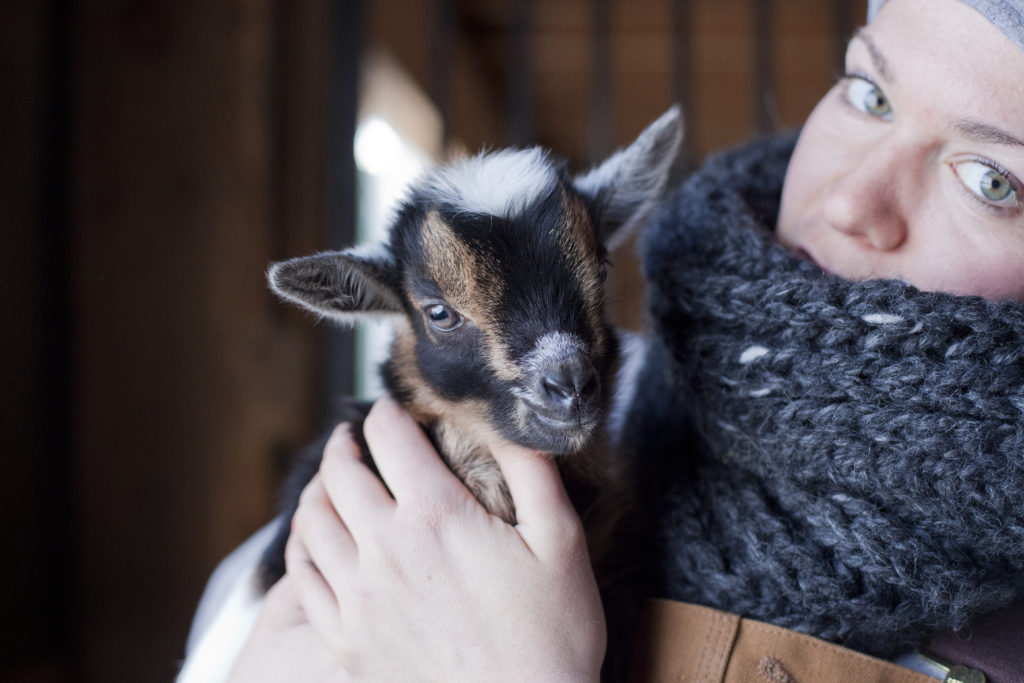
1. Fencing, Fencing, FENCING!
The reason why this topic is number one is because it’s the one thing that has caused more grief and headaches than anything else with goats. Simply put, they are master escape artists. If they can find a way out and have the desire to, they will make it happen. I have personally witnessed my goats walk up to a fence eyeball it, back up, walk up, eyeball it, then turn around and get a running start and use a rock as leverage point to propel over. Olympic athletes have nothing on these guys! Was it due to lack of forage? Nope. They were just jumpers and did it because they wanted to, and they could.
We have used every kind of fence imaginable from panels, welded wire, woven wire, to polywire electric netting. Some goats are just jumpers simply put, and if you get one that is, my thoughts are with you. It’s not fun, and basically the only way to stop them is to fork over a lot of money and invest in a rather tall fence they can’t jump over. But then, they may find a way to crawl under. My original doeling that has since been rehomed to a different farm was my notorious problem child. She could propel herself over anything if she put her mind to it. My current goats couldn’t care less or be bothered to attempt an escape, and I haven’t had an escapee in almost two years. It’s just luck of the draw.
I can’t stress enough though, that you should be prepared for the worst and it’s a lot cheaper in the long run to buy the right fencing at first (even if it’s a little pricier) than getting the cheap stuff and have to replace it due to escapes. I am not by any means exaggerating when I say we have spent thousands of dollars to fence in our goats. Depending on what your setup is, you can make your own fencing decision but I’m going to explain what I have for fencing here and why:
- Cattle Panels:
- Feedlot panels (6′ x 16′): These are by the far the most expensive panel I have ever seen or purchased, but in the small paddock directly off the back of the stalls of the barn this stuff is what encloses it. This panel is tall enough to deter anything from jumping over (whether that be out or in) and the squares are so small the entire way up that even the smallest Nigerian Dwarf baby goat can’t squeeze through. When the kids are very young they don’t get to go out into the big pasture quite yet, so they stay in the smaller paddock with mom. This allows them to be truly contained and safe.
- Feedlot hog panels (50″ x 16′): These are cheap at a local TSC in comparison to the aforementioned Fort Knox grade panels. These are used in approximately half of our big pasture and make setting up fencing really easy and are much more aesthetically pleasing than spooled fencing. They also have small enough squares on the bottom half of the panel to keep babies from slipping through.
- Welded wire: While it may have its uses say around a garden, I don’t recommend it for goats. Why? Because goats loooooove to rub on fences. There is a reason why welded wire is the cheapest type of fencing, and long term compared to others it will have to be replaced more frequently.
- Woven wire: Used in approximately half of my large pasture for the goats. It can be a little bit of a pain to get set up because you have to do a lot of pulling and stapling to prevent a saggy fence, but it does hold up very well to rubbing and is cheaper than panels if you’re fencing a large area. My recommendation is to get the tallest one you can to deter jumping, and with the smallest squares. If you end up getting goats with horns, if they can stick their head through they will get stuck and can strangle themselves. Small squares keep this from happening and help prevent baby goats from being able to slip through.
- Electric Polywire Netting: If you are going to rotate your goats even somewhat regularly, this is the way to go. It’s easy to set up, take down, and move. Even escape artist goats can respect it when properly trained. We use it to rotate our pigs, chickens, sheep, and goats. There is a reason it’s in the background of almost any photo of my animals in spring thru fall, I can’t say enough good things about it.
2. Horns versus No Horns
Horns versus no horns is a highly debated and touchy subject much like dam raises versus bottle fed. But, like anything else I truly believe it is a matter of personal preference and of course your decision to make. The first two goats I got were horned and after that I swore I would never have goats with horns again.
A goat’s horns are like little battering rams and they can do some serious damage. Not only have I had to practically break their necks trying to get them unstuck from the fence they had themselves caught in (this was before we had to buy better fencing with smaller squares they couldn’t get stuck in), but they have accidentally hurt each other as well as my livestock guardian dog. In a domesticated setting such as ours, they just aren’t necessary and can do more harm than good. While a goat without horns can still harm another goat, the chances are much less than one with horns.
Some people on the other hand love their goats with horns because it’s the natural way, or if they show them and the breed standard calls for horns then they have to leave them on. Regardless of what you choose, it’s something you want to seriously consider when getting your first goats.
3. Breed & Sex Choice - Is Dairy on My Radar?
The purpose of the goats on your property will steer you in the directions of what breed you will want to get. If they’re for meat then Boer goats or a cross are the obvious choice. If they’re for pets or land clearing then the choices are endless and it is a matter of what breed interests you. Keep in mind the size of the goat, and consider how much room you are able to allot them, what kind of housing you can provide, and how many you can comfortably raise on that space.
We got our original goats for land clearing so I didn’t really care what breed they were or if they were does or wethers. They were nigerian dwarf crosses, which made them very easy to move around and manage. But, it wasn’t long after we got them that I wanted to start focusing on dairy. The fact that I had a wether and a doe with unknown dairy lineage didn’t leave me in the best position.
So, my advice is if you have any inkling that dairy may be on your radar at some point, keep that in mind when selecting your breed and the sex of your goats. If I could do it all over again I would have never gotten a wether. They can’t be used to breed or be bred, so with a focus on dairy they’re kind of of useless (sorry Alan!). I also would have been more choosy about the breed I got as well as their lineage focusing on dairy, rather than whatever Craigslist had to offer at that time. Getting into the world of dairy opens a whole new can of worms as you start to consider milk production as well as butterfat content. But, that’s a topic that deserves a post all in itself!
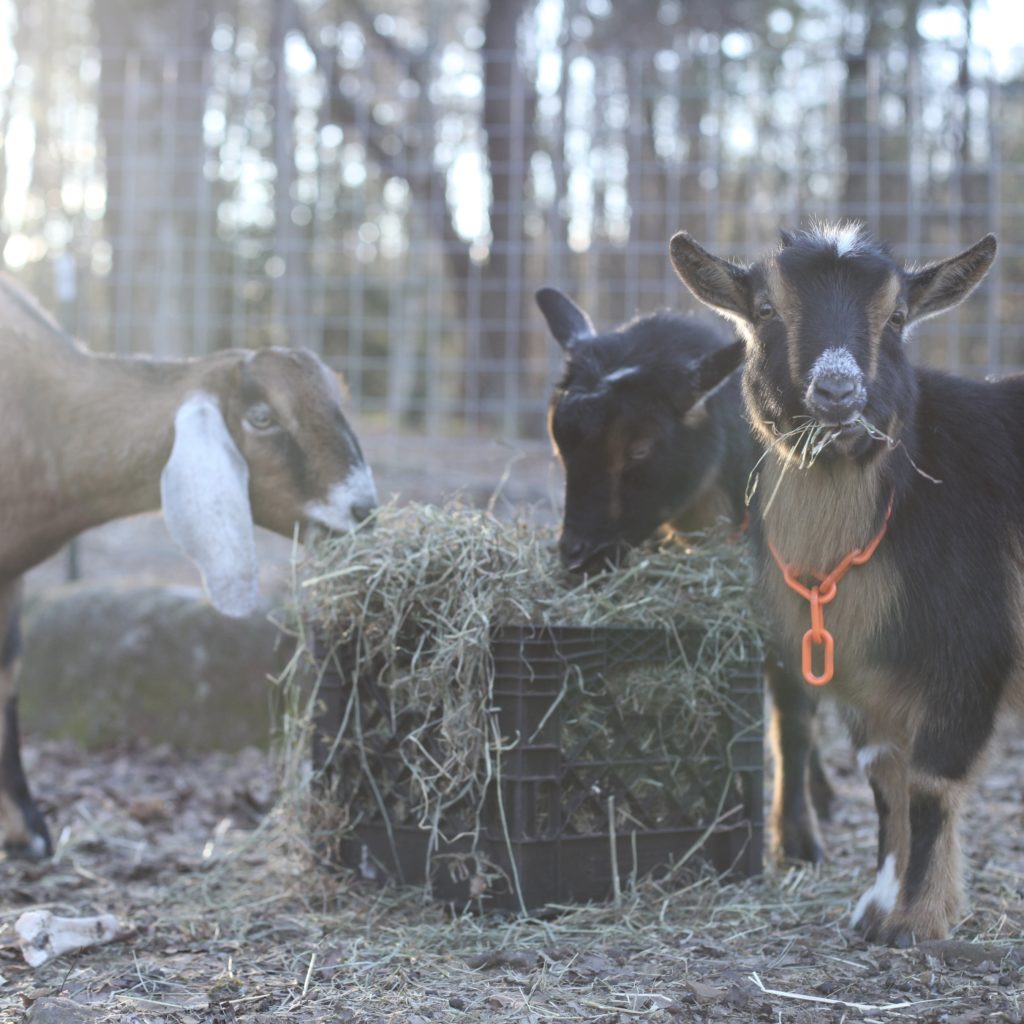
4. Urinary Calculi
It’s tough to be a wether. You get all of the same urges to breed as the bucks, but you lack the equipment to back it up. When a buck is castrated and becomes a wether, not only does he lose his manhood, but testosterone production and urethra development stop. A narrow urethra makes them extremely susceptible to developing urinary calculi. UC is a very serious medical condition where kidney stones are formed that the goat cannot pass. It’s an issue that if left untreated or caught too late, will result in death. It can rapidly escalate, and sometimes it’s impossible to catch in time. So prevention is key! I have only experienced it once, and it was a very hard (and expensive) learning experience for me.
All goats whether they be does, bucks, or wethers require a 2:1 Calcium to Phosphorus ratio as part of their basic nutrition. When the phosphorus ratio gets out of balance, this is what causes these stones to develop that lead to blockage. Yes, UC is possible in does and bucks, but it is rare when compared to the number of cases it’s seen in wethers.
So, if you’re getting wethers you will want to take this into consideration what you are feeding them and providing loose minerals. Everyone has a different opinion on if wethers should or should not eat grain. But, I have always heard it is a common cause for UC. This is what caused it in my situation, and ever since then I switched to strictly feeding alfafa to wethers and bucks at my vets recommendation in addition to hay and forage. Never grain, and I haven’t had an issue since.
5. Housing
When we got our first goats, they lived in a large dog house. No fancy barn, not even a shed. Just a regular large dog house. And you know what? It worked! It limped us along our first full year keeping them. They had plenty of room to be comfortable, yet it was small enough that it made it easy for us to pick up and move when we rotated them. We have come a long way and have since built our mini barn to accomodate our expanding herd and needs for additional hay storage, as well as a place to milk.
But, if your herd is not for dairy and you don’t need all of that additional space, you don’t have to go all out for housing. There are so many different options that are perfectly suited for raising goats even in the winter as long as they have sufficient bedding and you keep it clean! Repurposed sheds, quonset huts, carports, pallet buildings, the possibilities are endless. You can go as expensive or as cheap as you want, and still provide suitable housing for your herd.
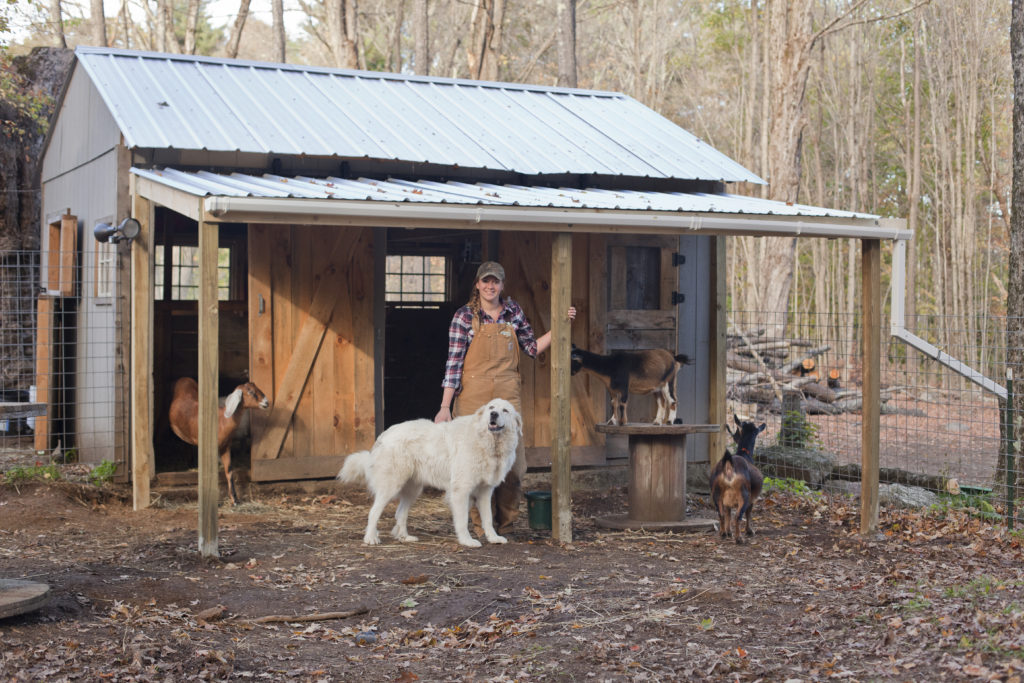
6. Routine Care
Regardless of the reason you keep your goats, there is some basic routine care that is required above making sure they have food and water. Giving an annual CD&T booster is the universal recommended vaccine to prevent tetanus and enterotoxemia. Both of these are deadly for goats, and the vaccine is cheap insurance against them that you can easily administer yourself.
Trimming hooves is another necessary part of keeping goats. While some may have to do it more frequently than others if their goats are raised on pasture versus a rockier terrain, it is something that has to be done. Neglected hooves become overgrown and can lead to hoof rot and separation of the wall and sole. This can result in lameness. Maintaining hooves is simple and something that should be done on a regular basis to prevent health issues.
7. Herd Dynamics
Everyone knows you can’t just have one goat. If you’ve never heard that then you just learned something new! Goats are incredibly social animals, and for this I would never suggest getting just one as they need a friend.
As your herd continues to grow, you will notice a natural pecking order begin to form with the herd queen on top. Yes, goats too have a pecking order, it’s not just for chickens! Herd queens come in many forms. Some are the strong silent type that rule gently, while others like my former herd queen Karen rule with an abusive iron fist. This social hierarchy is part of natural herd dynamics, so some head butting and pushing around is to be expected. It is a matriarchy, so the higher ranking goats pick on the lower ranking ones. But, sometimes it can get out of hand depending on the personality of your herd queen. Because of her growing aggressiveness towards my other does, I ended up re-homing Karen to a new farm. Audrey, another one of my does seamlessly stepped in to assume the role and she does so with grace .
8. Fresh Water
Fresh water is essential with keeping any livestock. If you want one of the best and easiest ways to keep your herd as healthy as possible, start with fresh water! Even in the winter, this is essential and I give my goats fresh water every day twice a day.
While this may seem like common knowledge to some (and it is) I have seen and heard of some really skanky water being left out for goats. This is just asking for problems, and remember “dilution is the solution to pollution”. So, in cases of UC in wethers like I mentioned above, lots of fresh water is key to helping the stones flush from their system!
9. Keep it Clean
Much like fresh water, I feel like this is also common sense. Keep your goats bedding dry and clean! This is cheap insurance to keep health issues at bay and not to mention just being a good steward to your animals. Goats don’t like to be wet or damp, so keeping their bedding clean and dry keeps them comfortable while reducing respiratory issues among other things.
Goats are not like pigs in the sense that they won’t go to the bathroom where they eat or sleep. A goat has no sense of hygiene when it comes to this, and they will quite literally poop and lay down in it. So, it’s our responsibility to keep it clean. Think of them as the kids that make a mess and never clean up after themselves. You are signing up for a lifetime (well, their lifetime) of cleaning out bedding. Know this going into getting your first goats
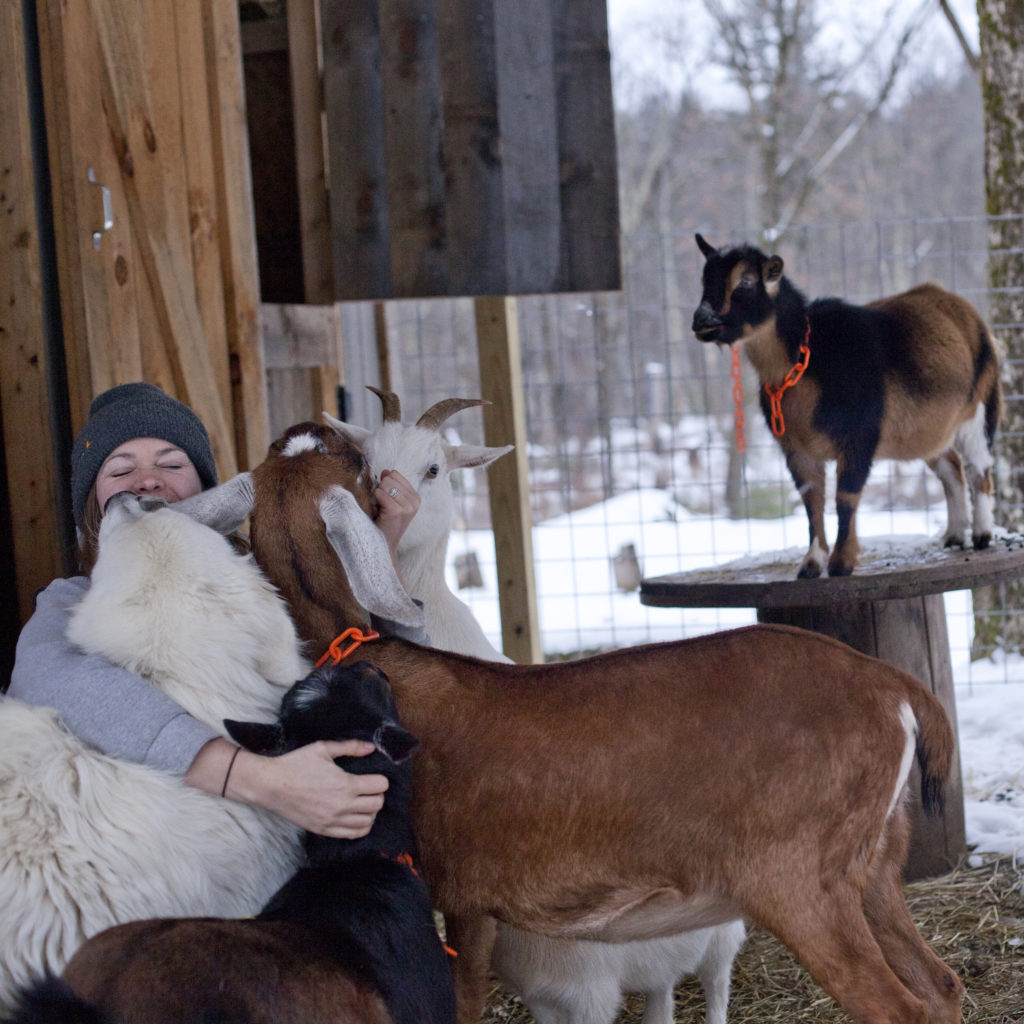
10. Parasites
There are a lot of parasites out there that can affect your herd, some are more concerning than others. There are various worming protocols that you can follow, but there are some things that you can do for preventative measures:
Pasture rotation is one of the best ways to naturally keep down parasite loads. Rotation allows the parasite cycle to break without a host for the parasite to complete its life cycle. If pasture rotation is not an option, the best possible advice I can give is to never feed your goat on the ground directly. I’m talking about hay or grain, always put it in a dish or a feeder. Now you’re probably thinking but they eat grass? Yes, but they are typically fed by or in the barn, where there is high traffic meaning poop. By not eating food directly on the ground in these high traffic areas you’re reducing the risk of them consuming eggs of a parasite they carried in on their hooves or they’re already shedding. Food dishes are cheap and we built our hay feeders out of scrap material. This is not a way to 100% prevent them from getting worms, it’s going to happen to you at some point. But, feeding off the ground is just another layer of protection to reduce their exposure. It doesn’t have to be overly fancy, just keep it off the ground.
11. Learn Your Goats "Normal"
Goats are pretty amazing animals. They are somehow incredibly sensitive, yet very strong and resilient at the same time. I mean, what other animal can give birth to five babies on her own without issue but scream and cry like she’s being murdered if she’s caught in the rain?
Joking aside, goats can become very sick with little notice and die quickly if left untreated. So, know your goats normal. Know what her average temperature is, maybe it always runs a little high or low than “normal”? Know if she is typically standoffish and is more laid back, or if she’s always front of the line. I could talk about each one of my goats personalities and behaviors in intimate detail like they’re characters on a tv show, and I know if something is amiss. Why? Because I pay attention. I observe them, I pay attention to how they interact with each other, with me, how they behave when milking. That way, when something seems off, this gives me an indication to check them out because something may be wrong. With goats, early detection and prevention is key.
12. Keep a Stocked Medical Kit and have a Relationship with Your Vet
Because goats can go downhill quickly with no notice, it is essential to keep a well stocked medicine cabinet. Keeping commonly needed supplies and medications on hand will give you the needed quick response that can mean the difference between life and death. While I have a kit that keeps me well stocked in a lot of basic veterinary supplies, I have other medications that I keep on hand that I got from my vet in case of an emergency.
While my vet is good and knowledgeable, they aren’t exactly close by. If I were in an emergency situation and I needed a certain medication that could at least help until she can get here, I try to keep that on hand. You can’t get everything from Tractor Supply or Jeffers, and in addition to a vets knowledge and ability to diagnose, you need them for many life saving prescription medications. Forming a close working relationship with a trusted vet is critical when raising livestock.
Are you an experienced goat keeper and have some words of wisdom you would like to add? Drop it in the comments below for those just starting out!
**Some of the links on this site are affiliate links. I only link to products I have used, abused, and believe in. While I do not make commissions on these, they do allow my partners to track business I have generated for them. I wholeheartedly appreciate you using my affiliate links for any of the products I recommend you may purchase! It keeps the educational and informative content coming.
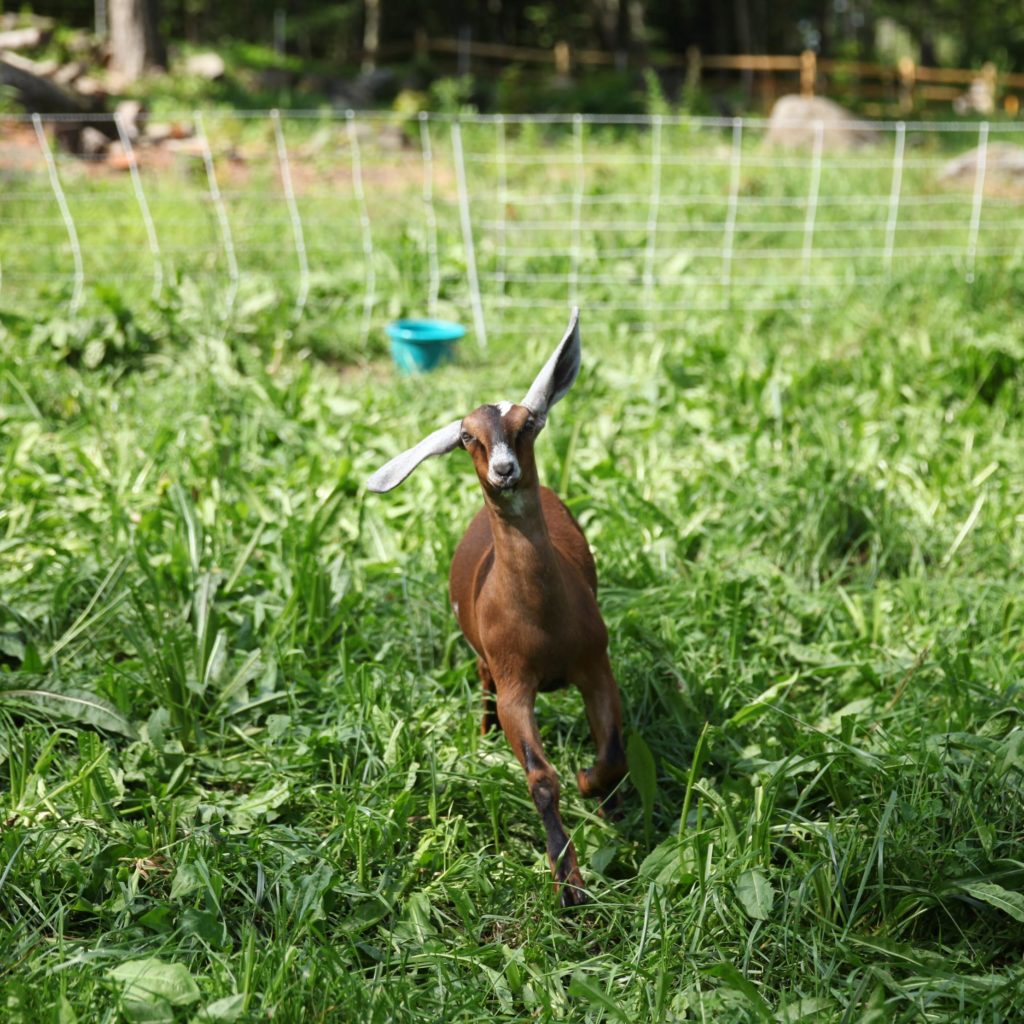

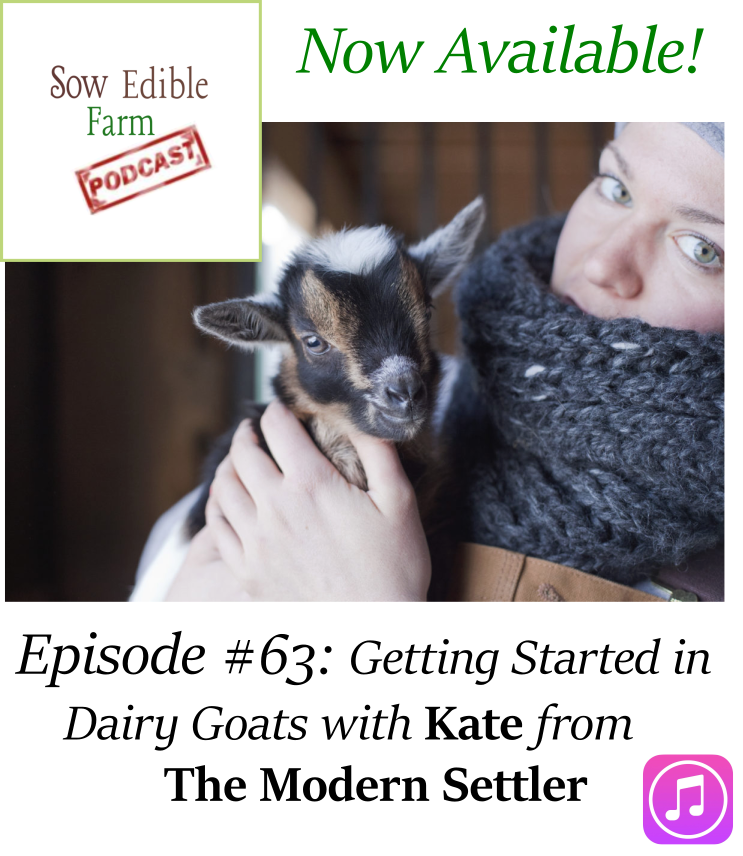
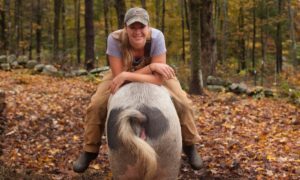
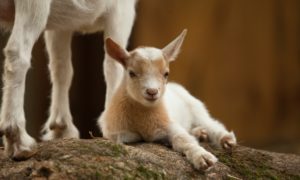
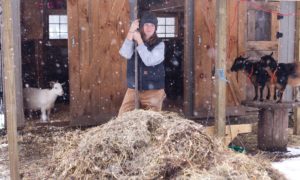
So many great points! I always recommend people to ask as many questions from a breeder or someone that has raised goats. It’s always a good idea to visit a breeder or a rescue and get an idea of how goats act. Ask as many questions as you can! If the person your getting your goats from can’t answer questions, or is pushy, it’s a major red flag! People that love goats will want to talk Goats. They really will want you to feel comfortable, even after the goats are sold. I’ve been breeding goats for 6 years. Caring for them longer then that. I still call my goat mentor and ask questions! Yeah, I know a goat mentor, but seriously being able to talk to someone who has gone through it is so essential in moments that you can’t get a hold of a vet, or your worried. Support with livestock and connections is a wonderful thing. I definitely don’t think you have to buy from a breeder, but informing yourself and talking as much as you can with someone can save you a lot of heartache. Plus keep you safe from people that take advantage of new buyers. Goats are herd animals and need at least one other goat. Do not buy a goat as a single! This is something I get emails and calls about all the time. Goats are amazing and worth all the effort and research. Thanks for putting time in to inform people about these wonderful creatures.
Yes, GREAT POINTS when even purchasing the goat! If someone isn’t willing to talk to you or answer questions that is a major red flag to run away! And a goat mentor is worth their weight in gold! I have one, and it’s great to just have someone to even bounce ideas off of in terms of supplements, care, and milk recipes!
U mentioned no grain for wethers what do u recommend for doelings especially milking ones
I feed my does New Country Organics goat feed. That’s what I have used for years, and I truly believe it is the best! It’s organic, non-gmo, and soy free which are very important things for us, and it is great for lactating does. The boys (whether he be a wether or buck) gets straight alfafa pellets.
Pingback: SEp 063; Getting Started in Dairy Goats with Kate from The Modern Settler
Very informative. I like how you broke all the information down into categories to make it easy to digest. I did 4H with goats for several years, and we learned a number of things about taking care of goats in that time, but that was many years ago, so this was a great refresher. I don’t know if goats are in my future, but in a way, it would be nice to have some. So this information is really helpful if I do decide to get some at some point.
I’m glad you found it easy to read and informative!! Hopefully if you do decide to get back in the game this proves to be useful for you!
Thanks for this great article. Heard you on the Sow Edible podcast, so had to come find your blog. Looking for a place in SW New Hampshire right now where we can have a little homestead. Looked at a place yesterday that totally needs some goats to do some clearing of the yard-that’s-not-a-yard – wild grasses, thistles and weeds galore, not to mention poison ivy. Your article is really helpful with things for me to think through before we get goats. What do you recommend for deeper education?
Thank you for checking my blog out! Sounds like goats will be a perfect fit for your needs. I would look at Deborah Niemann’s book “Raising Goats Naturally” for a good in depth all around book!
You asked for comments here on your blog, so I’ll start leaving them when I visit here. IG is just so much faster to leave comments, and quite frankly I don’t check my email (it’s actually just a dummy email account for “required” purposes). But I do appreciate your blog. I follow your journey because I am studying before diving into farm animals. I don’t have goats, ducks, or pigs yet but may some day. I want to make sure I can do it right before making that decision. Thanks for sharing your knowledge. Much appreciated.
Thanks! I appreciate you taking the time 🙂
You have been a staple in my knowledge of getting goats! Thank you so much!!
Awww thank you! 🙂
I’ve shared this with my husband to read as we are gearing up to get goats in the spring and are starting from ground zero! This is honestly the most well thought out and informative article I’ve read!
Thank you! I hope it is helpful for you both in getting your first goats!
Thanks so much for this post! Lots of usefull tips for us, as we are about to welcome our first goats (for dairy and clearing) to our small homestead.
So glad it’s informative for you!
My name is Okey Uchenna. Am very interested in keeping goats just for meat & reproduction. Can you pls tell me the particular species that can help me achieve this purpose faster. Thank you
Look into Boer goats
This post was wonderful! Thank you for all the information. Your blog posts and IG have inspired my partner and I to look into homesteading with chickens and a couple of goats! I am so glad I found your content! It’s extremely helpful. Are there certain goats that produce better cream for things like yogurt and ice cream? I have seen your posts on ice cream and yogurt but wasn’t sure if that requires special machinery/cooking techniques to separate or if it separates on its own based on a breed.
Thanks again for this stellar information!
So glad I could inspire you guys! Yes, there are definitely different breeds that have different standard ranges for butterfat. Of course you also need to take into considering the specific genetics of the particular goat because that can make a huge difference as well! Butterfat Comparison
We are moving out of the city to our first little mini farm (4 acres, so very small lol). We will get 1 goat as part of the move and I am hoping to expand that once we feel confident in our ability to care for them. This post was SO helpful as we think about purchasing one or two more goats and hopefully having them for milk. Thank you SO much for all of the in-depth content on this blog.
You’re so welcome, best of luck in the hunt for your goats!
Hey! I am newer to goats! Just recently added a Nubian doeling. I read so many different things but just can’t deicde. What do you use as far as minerals and/or supplements?
Hi there! So I use a mineral supplement called Replamin Gel Plus for my goats and pigs. In addition to that I top dress the goats feed with Kelp meal!
Hi! This post is so informative and helpful!!! Thank you for the time and effort you took in putting it together! My husband and I are planning to get goats in the near future. We are in South Carolina and it gets hot and humid in the summer and relatively mild winters. Will our climate affect the type of goat we need? We need goats for clearing but also want to get into milk as well. Thanks again!!!
Hi Sarah!
I am certain there are certain breeds of sheep that are better equipped to handle hot and humid southern temperatures. Probably breeds that descend from those that originally lived in deserts/Africa- I would definitely do some googling on that one as I don’t know the specific breeds off hand. You also might want to see what breeds people around you are raising, that will give you a good indicator of what breeds are suitable and do well to your climate! Regardless as long as you are providing shade and water, I’m sure they will be okay!
Enjoyed this info. I read up on goats before getting two rescue Nubian dwarfs. They are dehorned and wethered already. When we built the fence, we made it 5 foot high with the T-posts on the inside. One of the diagonal ones was more lower and on the inside. I swear the smallest one took.a running jump, put his hoof on that post and jumped my fence! He hurt his back foot too. We built up the fence since then another 2 feet. Another thing we learned is the gate latch was high and the gate has some give, the same goat stuck his nose through and moved the gate enough to squeeze through. We moved the latch down since and prevented this. We let them forage on our property all day and put them in a pen.at night. I’m only.worried.about the info on wethered goats. I give them a tiny bit of sweet grain at night when.they go in.their pen. Otherwise, they get grasses from our property and alfalfa.
I have personally experienced and witnessed the miraculous feats they’re capable of to escape! It’s truly mind blowing!